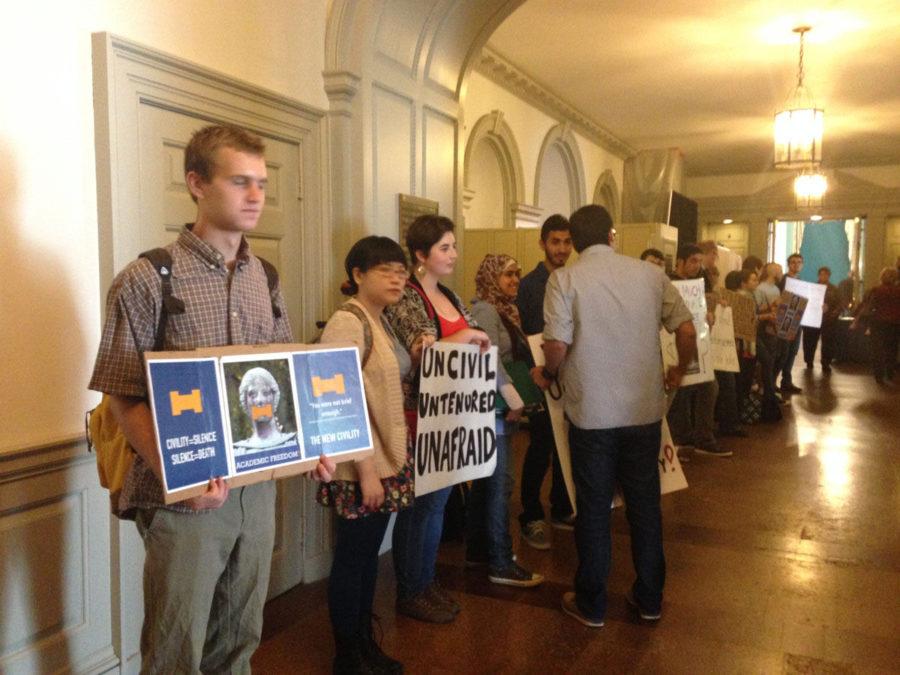Faculty senate discusses Salaita impact on campus
Student activists stand at the back of the Illini Union Ballroom, protesting the rejection of Salaita and censorship.
September 23, 2014
“Hey-hey-ho-ho censorship has got to go,” shouted protestors from the back of the Illini Union ballroom as the first academic senate meeting of the year began. Professors and students voiced their concerns over the rejection of Steven Salaita’s appointment to the American Indian Studies program.
The Board of Trustees voted 8-1 to reject Salaita’s appointment at its meeting on Sept. 11.
“We must recognize that our statutes say that within the limits fixed by the Illinois constitution of laws, the Board of Trustees exercises the final authority of the University,” said Roy Campbell, chairman of the Senate Executive Committee.
Campbell urged professors to reconsider a “vote of no confidence.” He said he feels many are not making distinctions between expressing their anger in a resolution and voting no confidence, which in U.S. higher education means someone is no longer able to effectively serve their post.
When a vote of no confidence is taken, the Open Meetings Act rules need to be followed and vote totals should be released with the vote, Campbell added.
Get The Daily Illini in your inbox!
On Monday, executive officers representing the 14 departments that voted no confidence in University administration issued a statement reaffirming their vote.
The following departments issued votes of no confidence: African American Studies, Sociology, Gender and Women’s Studies, Latina/Latino Studies, French and Italian, History, Anthropology, Religion, Asian American Studies, English, Philosophy, American Indian Studies, East Asian Languages and Cultures and the Program in Compartive and World Literature.
Campbell said “it is fair to say that on all sides of this dispute, no one wants to find our campus in this situation ever again.”
During the meeting, Chancellor Phyllis Wise said that she feels honored to be the chancellor and that she would continue to meet with faculty and students in the upcoming weeks regarding academic freedom and freedom of speech.
“I’ve heard from one professor at the College of Media that the constitution makes it clear that there is no limit on freedom of speech and that we need not discuss this any further. But a few days later when I visited the College of Law, one of their faculty members told me that in constitutional law, they have a whole semester course on the first amendment … and the definition and limits of free speech,” Wise said.
She said the hiring process is being reviewed, and the Board of Trustees needs to approve appointments much closer to when they are made.
A forum on “Academic Freedom Across the Disciplines” will be held at the Beckman Institute, 405 N. Mathews Ave., at 4 p.m. Sept. 29.
Megan can be reached at [email protected].







